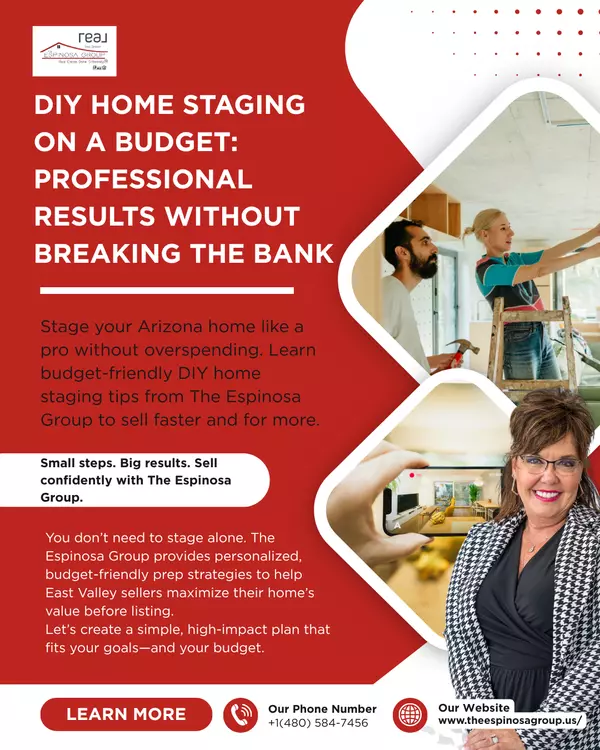 In a competitive real estate market, it can be frustrating to see your home stay on the market longer than expected. Whether you're selling to upgrade, downsize, or relocate, a lack of buyer interest can create stress and uncertainty. Identifying the common reasons homes don’t sell—and knowing how to tackle them—can help you achieve a successful sale.
In a competitive real estate market, it can be frustrating to see your home stay on the market longer than expected. Whether you're selling to upgrade, downsize, or relocate, a lack of buyer interest can create stress and uncertainty. Identifying the common reasons homes don’t sell—and knowing how to tackle them—can help you achieve a successful sale.
1. Overpricing
A major reason homes don’t sell is due to unrealistic pricing. Sellers often have emotional ties to their homes, leading them to set prices higher than the actual market value.
Solution: Research comparable homes in your area by reviewing recent sales, active listings, and market trends. Hiring an appraiser or real estate agent for an objective price assessment can help you set a more competitive price and attract more buyers.
2. Lack of Curb Appeal
First impressions are critical in real estate. If your home's exterior doesn’t stand out, potential buyers might not even step inside.
Solution: Focus on improving your home’s curb appeal. Simple upgrades like mowing the lawn, planting flowers, painting the front door, or power washing the driveway can make a big difference. Ensure your home looks inviting from the outside to encourage buyers to take a closer look.
3. Insufficient Marketing
Even if your home is priced right and looks great, it won't sell without proper marketing. Relying solely on traditional marketing methods can limit your audience.
Solution: Work with a skilled real estate agent who uses a mix of marketing strategies, including social media ads, virtual tours, and professional photography. Open houses and private showings can also help attract potential buyers.
4. Outdated Features
Homes that haven’t been updated in years may not appeal to today’s buyers who expect modern amenities and design.
Solution: Pinpoint which features of your home may be dated and consider making small but impactful updates before listing. You don’t need a full renovation—simple fixes like fresh paint, new light fixtures, or updated appliances can modernize your home without excessive cost.
5. Location Challenges
While you can't change your home's location, understanding how it affects desirability is important. Factors like proximity to schools, public transportation, and noise levels can affect buyer interest.
Solution: Emphasize the positives of your location in your marketing materials, like nearby parks or community activities that may appeal to potential buyers. If there are drawbacks, such as traffic noise, be upfront and focus on the benefits that offset those concerns.
6. Lack of Staging
An empty or cluttered home can make it difficult for buyers to envision living in the space. Staging helps present your home in its best light.
Solution: Consider hiring a professional stager who can arrange furniture and decor to showcase your home’s best features and create a welcoming environment. If professional staging isn’t an option, decluttering and rearranging your current furniture can still enhance the home’s appeal.
7. Limited Showing Availability
If you’re too restrictive with showing times, you might be missing out on interested buyers.
Solution: Be as flexible as possible with showings and try to accommodate last-minute requests. The more accessible your home is for viewings, the better your chances of generating interest and receiving offers.
8. Ignoring Feedback
If you've had multiple showings without any offers, it's important to gather feedback from potential buyers and their agents to identify what’s holding them back.
Solution: Use feedback constructively to address any issues that may be deterring offers—such as unpleasant odors or outdated design elements. Making quick adjustments can help improve buyer perception and increase your chances of selling.
Conclusion
Selling a home can be a challenging process, but by identifying and addressing common issues, you can significantly improve your chances of closing a deal. From adjusting your price to enhancing curb appeal and staging, taking proactive steps can help turn a "For Sale" sign into a "Sold" one. The right strategies will bring you closer to a successful sale in today’s competitive real estate market.













 In a competitive real estate market, it can be frustrating to see your home stay on the market longer than expected. Whether you're selling to upgrade, downsize, or relocate, a lack of buyer interest can create stress and uncertainty. Identifying the common reasons homes don’t sell—and knowing how to tackle them—can help you achieve a successful sale.
In a competitive real estate market, it can be frustrating to see your home stay on the market longer than expected. Whether you're selling to upgrade, downsize, or relocate, a lack of buyer interest can create stress and uncertainty. Identifying the common reasons homes don’t sell—and knowing how to tackle them—can help you achieve a successful sale.